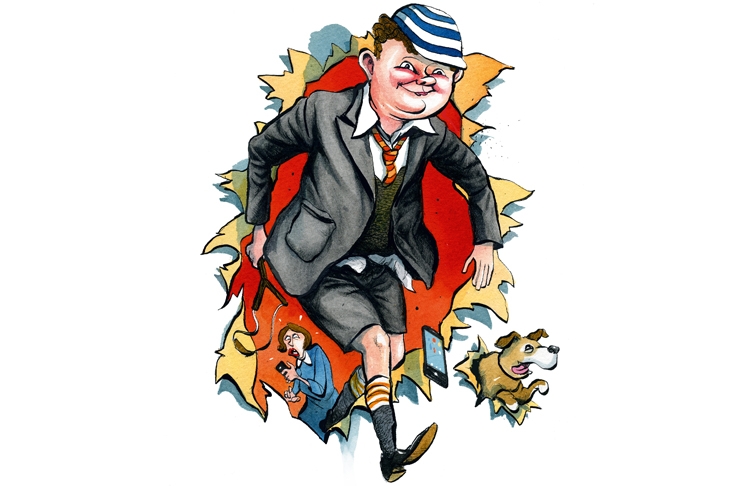Poor old Wandsworth Council. After being pilloried in the weekend press for banning children from ever having fun outside ever again, its members are complaining of a stitch up, claiming that they were merely updating by-laws which would allow them to prosecute someone who was drunkenly thrashing about in a tree, rather than a child wanting to clamber around its branches.
The Council was accused of telling children that they couldn’t fly kites, climb trees or play ball games such as cricket in its parks. Campaigners said it would make it even more difficult for children to exercise and enjoy the great outdoors, but councillors have insisted that this is just not the case at all. Deputy leader Cllr Jonathan Cook said: ‘It’s a classic case of fake news. This is about stopping antisocial behaviour. For example, if you’ve got a 20-stone bloke who’s inebriated coming from a pub next to Battersea Park and he’s crashing round in a tree breaking branches then obviously we might have a word with him. But nobody in a million years is going to stop a child playing with a kite or messing about in a tree – that’s what childhood is about and what parks are for.’
Many of the existing by-laws are rarely enforced except when that 20 stone bloke turns up in a tree, though it’s easy to understand why people got rather confused.
But even if Wandsworth Council had turned into the Grinch that stole playtime, its silly laws would still seem rather irrelevant given how few children play outside anyway. A study in 2016 found that three quarters of UK children spend less time outside than prison inmates, while analysis by Natural England in the same year discovered that more than one in nine children hadn’t set foot in any sort of natural environment, including the humble local park, for at least 12 months. The zone in which they are free to play outside alone has shrunk over the generations to just a few metres around their home.
As the great outdoors becomes smaller in children’s lives, the words to describe it are fading too. Over the past decade, the Oxford Junior Dictionary has dropped words such as ‘blackberry’ and ‘crocus’ as the publisher’s analysis of children’s language discovered that they just don’t use these words any more. Even those of us who aren’t old enough to use the 1950s as our reference point for all that was apparently good in society can remember the happiness of blackberry picking, of stuffing as many fat fruits into our mouths as we dropped into the bowl, before returning home, hands blue and red from the juice. The latest update to the dictionary attracted more outrage: common plants like bluebell disappeared, suggesting children hadn’t glimpsed that strange mist in the April woodlands even from a car window. Conkers are apparently not enough of a feature of children’s lives to merit a mention , and neither are newts or mistletoe (this last one is weird, and suggests that we all need to play a lot more Mariah Carey to children in order to reverse the declining importance of the parasitic plant in their lives).
Perhaps it doesn’t matter so much that children don’t go blackberry-picking or experiment with painting conkers with nail varnish, as I did, to see whether they’ll withstand the next fight. We are less connected to nature, sure, but we are living longer and in greater comfort than our ancestors who couldn’t avoid it invading their lives even if they tried.
This argument doesn’t seem to hold up, though. Children are caught in an epidemic of mental illness and obesity. Adults aren’t faring much better, either, even though there is a good body of research on the connection between nature and good mental health. As Rod so eloquently outlined in the Spectator recently, there does seem to be a connection between the way the modern safety with obsession constricts children’s lives and the fact that they are increasingly unhappy. And none of that has much to do with what sort of rules parks enforce: even if Wandsworth had introduced a load of ridiculously draconian by-laws banning children from even walking on the grass, many wouldn’t even have noticed.







Comments